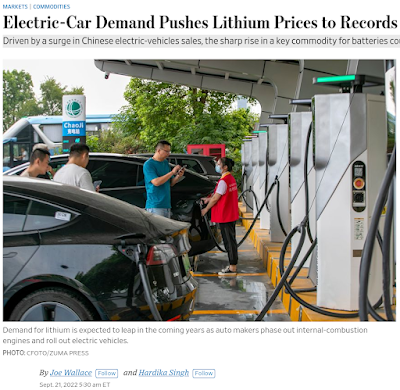- Gary Becker argued that the minimum wage exacerbates the employment disparity between White and Black workers when employees discriminate against Black employees in favor of White employees. A minimum wage greater than the equilibrium wage, creates a surplus of labor and allows employers to discriminate against Black workers without having to pay higher wages to White workers.
- Jason Riley writes that the origin of minimum wage legislation is, in fact, racist (WSJ, Feb. 2021).
- “The federal government got involved in setting wage levels in the 1930s and did so at the urging of unions that excluded blacks as members. During debates in Congress, lawmakers complained openly about the ‘superabundance’ and ‘large aggregation of Negro labor’ and cited complaints by whites of black Southerners moving north to take jobs.
- “As Congress increased the minimum wage periodically over the decades, these same arguments were put forward as a justification. When he was a U.S. senator from Massachusetts, John F. Kennedy backed minimum-wage hikes as a way of protecting New England industry. ‘Having on the market a rather large source of cheap labor depresses wages outside of that group, too—the wages of the white worker who has to compete,’ he lectured an NAACP official at a hearing in 1957. ‘And when an employer can substitute a colored worker at a lower wage—and there are, as you pointed out, these hundreds of thousands looking for decent work—it affects the whole wage structure of an area, doesn’t it?’”
- "We provide a comprehensive analysis of the effects of minimum wages on blacks, and on the relative impacts on blacks vs. whites. We study not only teenagers – the focus of much of the minimum wage-employment literature – but also other low-skill groups. We focus primarily on employment, which has been the prime concern with the minimum wage research literature. We find evidence that job loss effects from higher minimum wages are much more evident for blacks, and in contrast not very detectable for whites, and are often large enough to generate adverse effects on earnings. We supplement this work with additional analysis that distinguishes between effects of an individual’s race and the race composition of where they live. The extensive residential segregation by race in the United States raises the question of whether the more adverse effects of minimum wages on blacks are attributable to more adverse effects on black individuals, or more adverse effects on neighborhoods with large black populations. We find relatively little evidence of heterogeneity in effects across areas defined by the share black among residents." (NBER working paper by David Neumark and Jyotsana Kala)
Eclectic-Economist
Edward Millner's blog. It contains links to articles for students taking Principles of Microeconomics and Managerial Economics. It also contains links to articles about politics. The opinions here are mine. No one at VCU reviews or approves what I post.
Wednesday, November 20, 2024
How racist is the minimum wage?
Friday, January 6, 2023
Quartz talks about the benefits of free trade
Here is what Quartz says would happen if the world split into two separate trading blocs.
2.2%: Expected decline in global trade growth in 2022, according to the World Trade Organization
5%: How much global GDP would drop if countries split into two economic trading blocs
1%: Fall in US GDP if this split happened
7%: Decline in GDP for developing nations under the arrangement
43: Countries that Apple sources materials from to build the iPhone
25-30%: Global supply of palladium, a material used in iPhones, that Russia produces
Thursday, September 22, 2022
The West Mimics Mao, Takes a Green Leap Forward
My takeaway is "Look before you leap".
Not everyone is enthused about how governments are pushing green energy.
"One of the essential lessons from China’s Great Leap Forward is that catastrophic failures inevitably follow from politicians’ insistence on ignoring reason, logic, truth and economics. Europe’s current energy crisis, California’s continuing power outages and Sri Lanka’s food shortages are all warning signs. The Green Leap Forward has set humanity on a fast track to another man-made catastrophe." WSJ, Sept. 2022
Another opinion in today's WSJ bemoans the proclivity of Telsa batteries to overheat and catch fire. Who knew?
Success at Work Is Warped by Your Co-Workers’ Salaries
Design your compensation scheme carefully.
"It was as if simply knowing how the market valued talent made them want to be entirely different people at work. These players couldn’t resist the incentives 'to produce whatever the boss is measuring and rewarding,' as Mr. Card wrote in an email, even if those bosses were measuring and rewarding the wrong numbers." WSJ, Sept. 2022
Wednesday, September 21, 2022
Electric-Car Demand Pushes Lithium Prices to Records
Driven by a surge in Chinese electric-vehicles sales, the sharp rise in a key commodity for batteries could slow adoption of EVs globally. WSJ, Sept. 2022
Questions
- How would an increase in the number of EVs affect the equilibrium price and quantity of lithium?
- How would an increase in the price of lithium affect the equilibrium price and quantity of cars?




